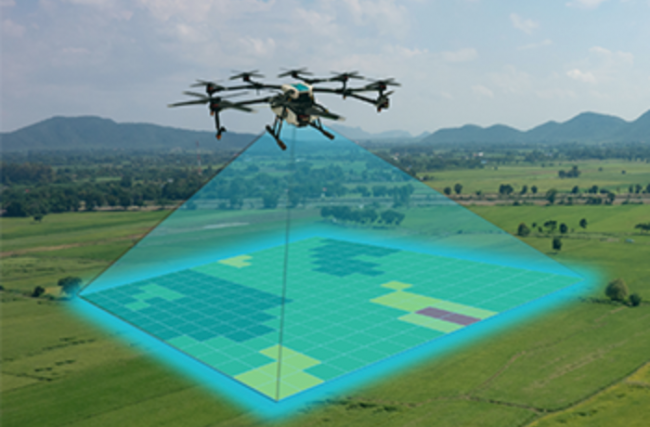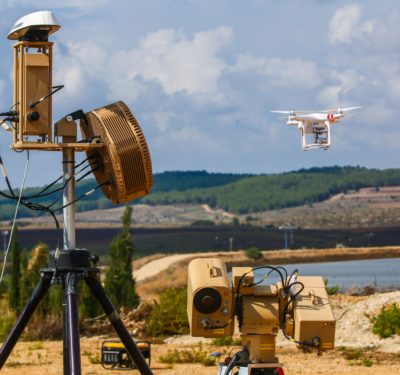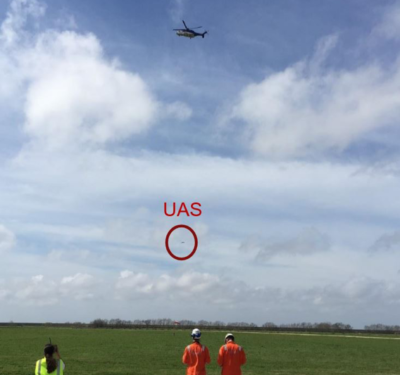
Photo courtesy of DHS.
Over the last decade, unmanned aircraft systems (UAS or “drones”) have become a regular feature of American life. We use them for recreation, for research, and for commerce. But the proliferation of this new technology has also introduced new risks to public safety, privacy, and homeland security. Malicious actors have increasingly used UAS domestically to commit crimes, conduct illegal surveillance and industrial espionage, and thwart law enforcement efforts at the local, state and Federal level.
On April 25, the Biden Administration released the first whole-of-government plan to address UAS threats in the Homeland. Through the Domestic Counter-Unmanned Aircraft Systems National Action Plan, the Administration is working to expand where we can protect against nefarious UAS activity, who is authorized to take action, and how it can be accomplished lawfully. The Plan seeks to achieve this legitimate expansion while safeguarding the airspace, communications spectrums, individual privacy, civil liberties and civil rights. To achieve this balance, the Administration is calling on Congress to adopt legislation to close critical gaps in existing law and policy that currently impede government and law enforcement from protecting the American people and our vital security interests.
UAS serve many beneficial commercial and recreational purposes. As has been the case with many technological advances, they can also be exploited for pernicious purposes. To protect our Homeland and prevent their growing use from threatening the safety and security of our people, our communities, and our institutions, this Counter-UAS National Action Plan will set new ground rules for the expanding uses of UAS and improve our defenses against the exploitation of UAS for inappropriate or dangerous purposes.
Recommendations
The Plan provides eight key recommendations for action:
- Work with Congress to enact a new legislative proposal to expand the set of tools and actors who can protect against UAS by reauthorizing and expanding existing counter‑UAS authorities for the Departments of Homeland Security, Justice, Defense, State, as well as the Central Intelligence Agency and NASA in limited situations. The proposal also seeks to expand UAS detection authorities for state, local, territorial and Tribal (SLTT) law enforcement agencies and critical infrastructure owners and operators. The proposal would also create a Federally-sponsored pilot program for selected SLTT law enforcement agency participants to perform UAS mitigation activities and permit critical infrastructure owners and operators to purchase authorized equipment to be used by appropriate Federal or SLTT law enforcement agencies to protect their facilities;
- Establish a list of U.S. Government authorized detection equipment, approved by Federal security and regulatory agencies, to guide authorized entities in purchasing UAS detection systems in order to avoid the risks of inadvertent disruption to airspace or the communications spectrum;
- Establish oversight and enablement mechanisms to support critical infrastructure owners and operators in purchasing counter-UAS equipment for use by authorized Federal entities or SLTT law enforcement agencies;
- Establish a National Counter-UAS Training Center to increase training accessibility and promote interagency cross-training and collaboration;
- Create a Federal UAS incident tracking database as a government-wide repository for departments and agencies to have a better understanding of the overall domestic threat;
- Establish a mechanism to coordinate research, development, testing, and evaluation on UAS detection and mitigation technology across the Federal government;
- Work with Congress to enact a comprehensive criminal statute that sets clear standards for legal and illegal uses, closes loopholes in existing Federal law, and establishes adequate penalties to deter the most serious UAS-related crimes; and
- Enhance cooperation with the international community on counter‑UAS technologies, as well as the systems designed to defeat them.






